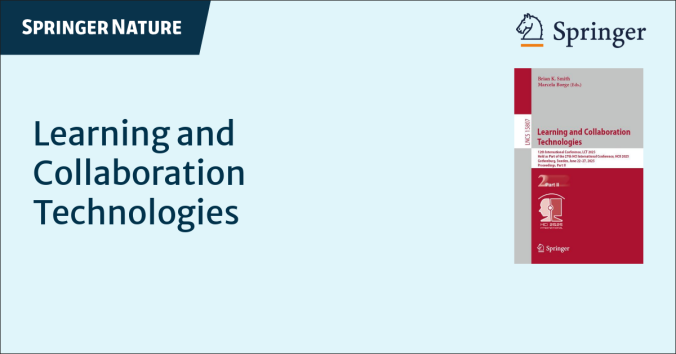Att patienter kan läsa sin journal online via 1177 Journalen har blivit en självklar del av svensk hälso- och sjukvård. Men hur upplever vårdpersonalen i primärvården denna förändring? I en ny studie i JMIR Medical Informatics undersöker Irene Muli, Åsa Cajander, Isabella Scandurra† och Maria Hägglund hur vårdpersonal upplevde implementeringen av journalöppning i en vårdcentral […]
Continue readingPage 4 of 14
I ett nytt forskningsprojekt riktar vi fokus mot en grupp som ofta hamnar utanför den digitala utvecklingen: kvinnor med erfarenhet av hemlöshet. Tillsammans med dessa kvinnor, civilsamhällesorganisationer och forskare från olika discipliner ska vi utforska hur digitala hälsotjänster kan utformas för att bättre stödja människor i utsatta och krispräglade livssituationer. Projektet leds av Jenny Eriksson […]
Continue readingHur påverkar AI vår förståelse i utbildningssammanhang – och vad händer med lärandet när tekniken inte kan förklara sig? I en ny artikel som jag skrivit tillsammans med Roger McDermott och Mats Daniels diskuterar vi hur generativ AI påverkar centrala pedagogiska begrepp som förklaring, förståelse och kompetens. Vi ser tydligt att många AI-verktyg, trots sin […]
Continue readingAI-verktyg som ChatGPT och GitHub Copilot har snabbt blivit en del av vardagen för många IT-professionella. Men leder dessa verktyg till den eftertraktade Flow-känslan – ett tillstånd av djup koncentration och arbetstillfredsställelse? I en ny studie som jag skrivit tillsammans med Eve Martina Lange och Maria Normark undersöker vi hur AI påverkar människors upplevelse av […]
Continue readingSomething is rotten… (part 2 of 2)

In the previous post I wrote about how we seem to forget most of our history, when it comes to failed projects. Some projects will create working conditions that are similar to working in a very messy kitchen, where the fridges have stopped working ages ago, but nobody has noticed. The sad fact is that […]
Continue readingUnder KAJT-dagarna i Borlänge förra veckan fick vi ta del av flera intressanta presentationer som belyste framtiden för svensk järnväg. KAJT (Kapacitet i järnvägstrafiken) är en svensk forskningsplattform som samlar akademi, institut och bransch för att tillsammans utveckla framtidens järnväg. Tåg-sektorn är en av branscherna som studeras i AROA-projektet och fler av oss från projektet var på […]
Continue readingThis week, I attended the last session in a series on valorisation at Uppsala University, titled “Do Research with Impact in Mind”. This seminar series turned out to be a very inspiring event and brought lots of ideas on how research can contribute to society, not just through publications but by becoming part of real-world […]
Continue readingUnder pandemin blev videomöten en naturlig del av vården. Men nu, när det digitala mötet inte längre är ett måste, väcks en ny fråga: vill patienterna fortsätta använda videokonsultationer även på längre sikt? Detta är kärnfrågan i en studie som jag, Åsa Cajander, varit med och författat tillsammans med Irene Muli, Helena Hvitfeldt, Lovisa Jäderlund […]
Continue readingIgår, den 28 april, uppmärksammade vi Arbetsmiljödagen – en dag som sätter fokus på vikten av en trygg, hållbar och välfungerande arbetsmiljö. Vad passade då bättre än att Jessica Lindblom, lektor vid Uppsala universitet, var inbjuden att presentera AROA-projektet vid Ergonomi och Human Factors Sällskapet Sveriges (EHSS) årsmöte vid Arbetsmiljö- och miljömedicin (AMM) i Uppsala? […]
Continue readingWhen we hear the word “handover,” we might think of a nurse passing on information at the end of a shift, or maybe a car switching from self-driving mode back to the driver. If you think more closely about it, you will see that handovers are everywhere around us — and that they are quietly […]
Continue reading




